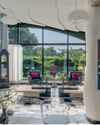
With an increased focus on energy efficiency, nations across the world have set an ambitious target to reduce 30% of its energy use by 2030, which could result in a minimum of 1.7 terawatt-hours of energy savings and a reduction of one million tonnes in carbon emissions.
These targets are extremely essential in combating the ill effects of climate change, especially given that the existing global building stock is a leading contributor to greenhouse gases (GHG), generating approximately 40% of annual global GHG emissions.
Now, take into consideration that approximately two-thirds of the buildings that exist today will still exist in 2050.
There’s no doubt about the fact that even if every single building constructed from today is energy efficient – which is a stretch in itself – action still needs to be taken on the present-day buildings that are “fuelling the fire of global warming”.
On average, heating, ventilation, and air conditioning (HVAC) contribute approximately 33% of a building’s total energy consumption, with major appliances such as water heating and freezers accounting for 18%, and lighting taking up an additional 10% of the power usage.
At the peak of their glory, the skyscrapers and towering buildings defining our skyline would have been well within their energy efficiency parameters, but given that many of them are now marking their 35th to 40th birthday celebrations, and are on the cusp of second childhood, the time has come to revisit their vitals – the electricity, mechanicals, and plumbing – which are keeping them alive and functioning.
FIT-OUT VS RETROFIT VS REFURBISHMENT
Denne historien er fra May 2021-utgaven av Architect and Interiors India.
Start din 7-dagers gratis prøveperiode på Magzter GOLD for å få tilgang til tusenvis av utvalgte premiumhistorier og 9000+ magasiner og aviser.
Allerede abonnent ? Logg på
Denne historien er fra May 2021-utgaven av Architect and Interiors India.
Start din 7-dagers gratis prøveperiode på Magzter GOLD for å få tilgang til tusenvis av utvalgte premiumhistorier og 9000+ magasiner og aviser.
Allerede abonnent? Logg på

REVITALISING HISTORY
The transformation of the Chambers of Khamovnaya Sloboda into a beautiful cultural project is indeed awe-inspiring.

DESIGNING FOR LEARNING
The Basil Woods International School, Hyderabad, designed by Architecture Dialogue is a beautiful example of how design can address the challenges of a site.

THE BATH WAY
New age sanitaryware is all things innovative, design forward, hygienic, and comfortable to make bathrooms functional as well as aesthetic.

BREATHING LIFE
Studio Swatp transforms a historic Alibaug wada into a vibrant holiday retreat.

KNOCKOUT KITCHENS
The kitchen continues to be the heart of modern living spaces, with trends emphasising a seamless blend of innovation, functionality, and aesthetics.

The ROYAL DEN
Harkaran Singh Boparai, Founder and Principal Architect, Harkaran Boparai Studio (HBS), takes us through his regal atelier in the heart of Delhi and the journey that led to it.

SCULPTING FLUIDITY
The architecture of The Liquescent House by Shaili Banker Architects displays a language of organic fluidity.

DESIGN DEBATE NEW IDEAS SET SAIL IN SCENIC GOA
Replete with Portuguese vibes and picturesque sites, the October Edition of the Design Debate held in Goa was an exceptionally intriguing one.

FENESTRATION FOR VILLAS
In contemporary villa architecture, the use of new-age materials in windows and fenestration is driven by the need for durability, sustainability, and sleek design.

BOLD AND ARTISTIC
Bengaluru’s Reservoire introduces a fresh narrative to the city’s social landscape, where art, nature, and architecture converge seamlessly.